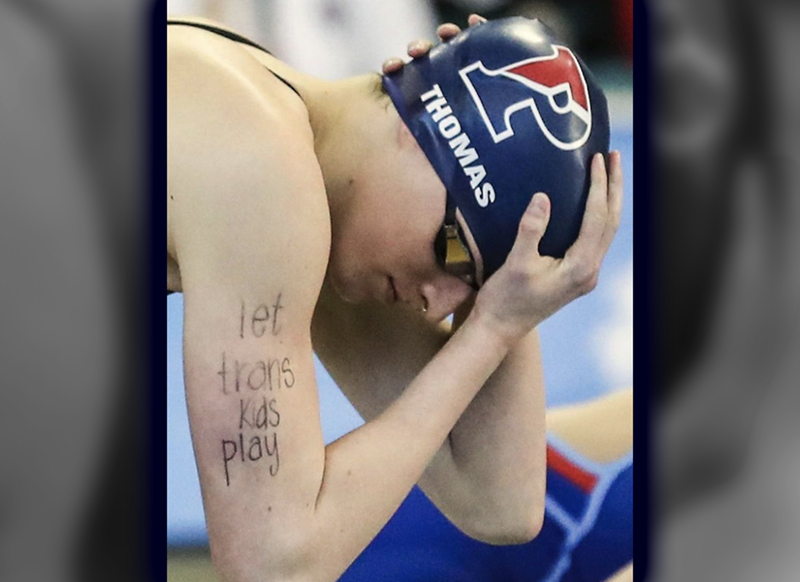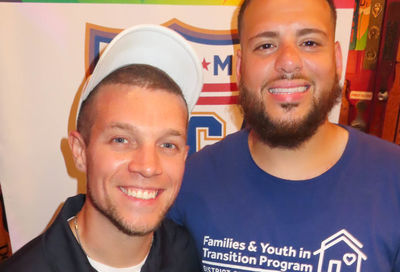Maryland AG issues guidance against police profiling
Sexual orientation and gender identity among list of traits law enforcement may not consider during routine operations

After months of protest over police brutality and issues surrounding racial profiling, most notably through demonstrations and riots in Baltimore following the death of Freddie Gray earlier this year, Maryland is issuing guidance to law enforcement officers about the acceptability of profiling.
Under the guidance in a memo issued by Attorney General Brian Frosh (D), police and other law enforcement officials may not take into account a number of protected traits — including race, ethnicity, gender, national origin, religion, sexual orientation, gender identity or disability — when conducting routine police operations, such as a traffic stop or when on patrol.
The Frosh memo also contains standards for investigations, in which law enforcement may take into account those characteristics only if they have credible evidence that they are relevant to an investigation.
Frosh’s memo makes Maryland the first state to adopt police profiling standards mirroring those for federal authorities, as outlined in guidance issued by the U.S. Department of Justice in December 2014 under former Attorney General Eric Holder. But Maryland has also gone beyond federal standards by expanding the list of protected characteristics beyond race and ethnicity to include traits like religion, sexual orientation and gender identity.
In a press release, Frosh stressed that he had issued the guidance in order to “rebuild trust between law enforcement and the communities they serve.” But he also stressed that the guidance is not meant to be a criticism of how police work is being conducted in Baltimore or anywhere else in Maryland or across the nation, a nod to rank-and-file officers who have felt under attack when criticisms of law enforcement have been raised. Frosh added that the guidance memo represents only a small part of what is expected of police officers so that they can effectively perform their jobs without engaging in unnecessary profiling.
“Police do a dangerous, difficult job, and they do it well,” Frosh said. “But experience shows us that improper profiling by police does terrible damage. It discourage cooperation by law-abiding citizens, it generates bogus leads that turn attention away from bona fide criminal conduct, and it erodes community trust.”
Interim Baltimore Police Commissioner Kevin Davis said in a statement that he was “committed” to ensuring that the standards for routine operations and investigations are incorporated into officers’ training and daily practices. Montgomery County Police Chief Thomas Manger also expressed support for the guidelines, noting that profiling based on personal bias is not only illegal but detrimental to the relationships that police need to foster with community members in order to effectively combat crime.
Frosh’s office said it would be holding training sessions throughout the state and would be publicizing information about the new guidelines in order to keep law enforcement agents residents up-to-date and informed.
“The Maryland State Conference NAACP is pleased that the Attorney General has chosen to model the state guidelines related to profiling after Justice Department federal guidelines,” Gerald Stansbury, the president of the Maryland State Conference NAACP, said in a statement. “African-American communities have been victims of profiling for far too long, and this is another step that we can build on to ending the practice in Maryland because we know that good policing can be done without improper and discriminatory police tactics.”
The ACLU of Maryland and Equality Maryland both hailed the new guidance as “an important step toward ending discriminatory profiling.”
“Everyone should be treated fairly and equally, and this guidance is a step toward making that a reality for Marylanders,” said Toni Holness, an attorney working on public policy with the ACLU of Maryland.
“Communities of color, including LGBT people of color, have been disproportionately impacted by this dangerous practice,” said Keith Thirion, the executive director of Equality Maryland. “Too often transgender women, and particularly transgender women of color, are targeted and assumed to be engaged in sex work or criminal activity just for walking down the street, often called ‘walking while trans.’ We welcome the Attorney General’s guidance and unequivocal statement that discriminatory profiling is out of step with constitutional freedoms and equality. …Every Marylander should be able to live their full lives without fear of harassment or violence motivated by racism, sexism, anti-LGBT prejudices or other biases.”
Support Metro Weekly’s Journalism
These are challenging times for news organizations. And yet it’s crucial we stay active and provide vital resources and information to both our local readers and the world. So won’t you please take a moment and consider supporting Metro Weekly with a membership? For as little as $5 a month, you can help ensure Metro Weekly magazine and MetroWeekly.com remain free, viable resources as we provide the best, most diverse, culturally-resonant LGBTQ coverage in both the D.C. region and around the world. Memberships come with exclusive perks and discounts, your own personal digital delivery of each week’s magazine (and an archive), access to our Member's Lounge when it launches this fall, and exclusive members-only items like Metro Weekly Membership Mugs and Tote Bags! Check out all our membership levels here and please join us today!
























You must be logged in to post a comment.